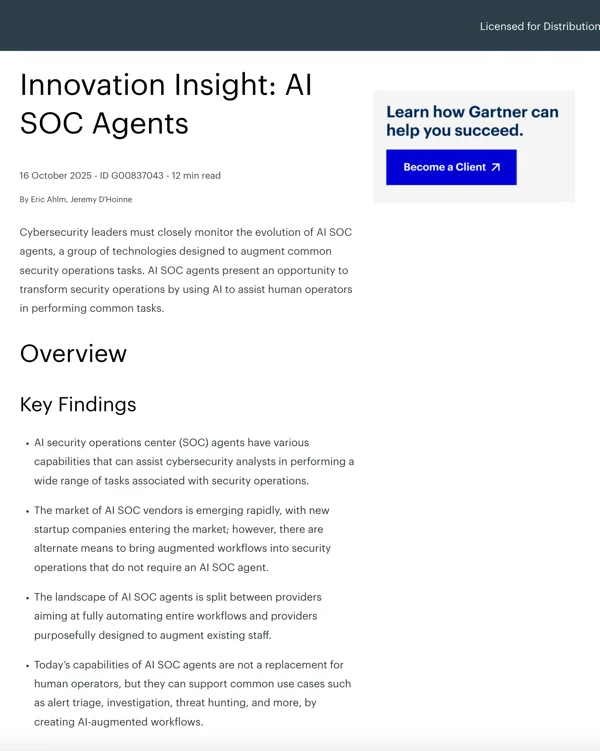
-min.webp)
AI agents are reshaping incident response in the SOC by reducing the time between detection and response action. Traditionally, once an alert fires, it waits in a queue for a Tier-1 analyst to review it. That analyst then spends time gathering context from various tools, writing up their findings, and escalating when necessary. AI agents eliminate this lag by performing that process autonomously, at machine speed.
An AI agent is more than a chatbot. It’s a purpose-built system that:
In essence, it performs the Tier-1 and Tier-2 investigation workload instantly, consistently, and at scale.
{{ebook-cta}}
AI agents don’t eliminate analysts, but instead make them more effective. By removing the manual labor of gathering logs or chasing down related events, they enable humans to jump straight into higher-level decision-making and response planning.
Prophet Security’s AI SOC Platform uses intelligent agents to accelerate incident response by autonomously handling alert triage, investigation, and response, without playbooks. By rapidly collecting context, connecting evidence, and reaching conclusions on its own, Prophet AI helps teams cut MTTI and MTTR by up to 90%. Want to see how it works? Book a demo.
How are AI agents used in incident response?
AI agents are used in incident response to autonomously investigate alerts, gather context, reason through evidence, and generate summaries.
How does Prophet Security's AI SOC platform accelerate incident response?
Prophet Security accelerates incident response by using AI agents to automatically triage and investigate alerts, reducing time to respond by up to 90%.
Do AI agents eliminate the need for analysts?
AI agents do not eliminate the need for analysts—they take over repetitive tasks so analysts can focus on high-impact work.
What tools do AI agents integrate with?
AI agents integrate with tools like SIEMs, EDRs, identity providers, cloud platforms, and email security systems.
How fast is incident response with AI agents?
Incident response with AI agents begins the moment an alert is triggered, often completing investigations in minutes.
Why are AI agents better than traditional playbooks?
AI agents are better than traditional playbooks because they adapt to new scenarios without relying on static workflows.
Get Gartner's guidance on evaluating and adopting AI SOC agents

